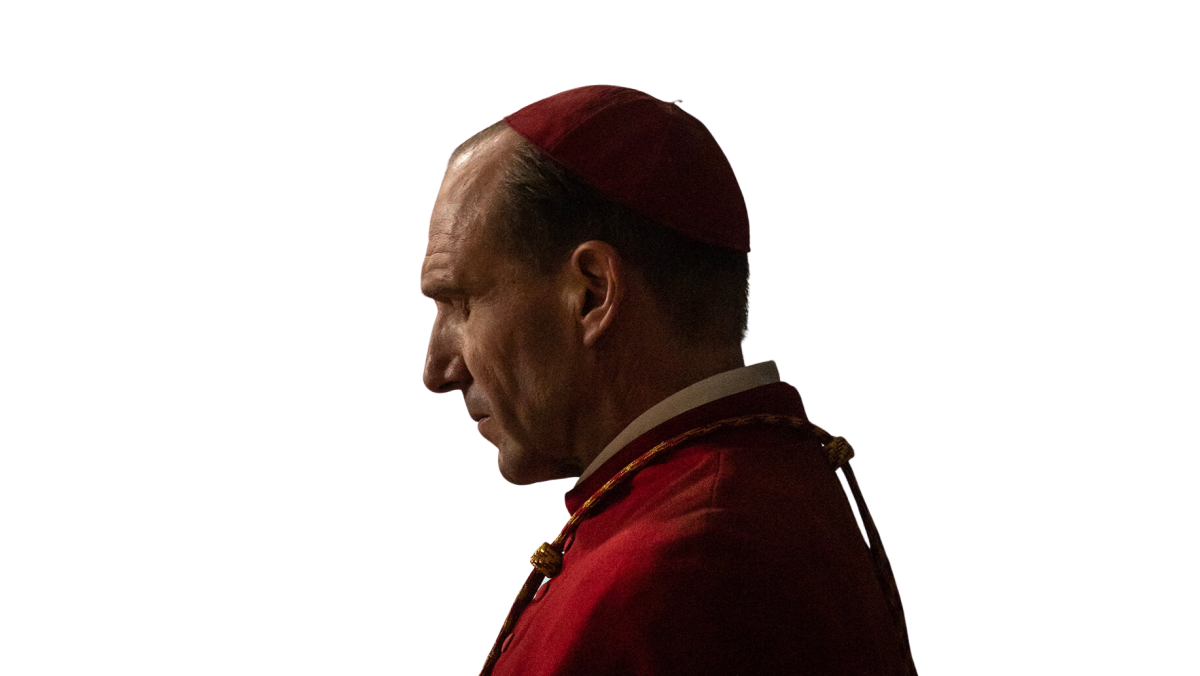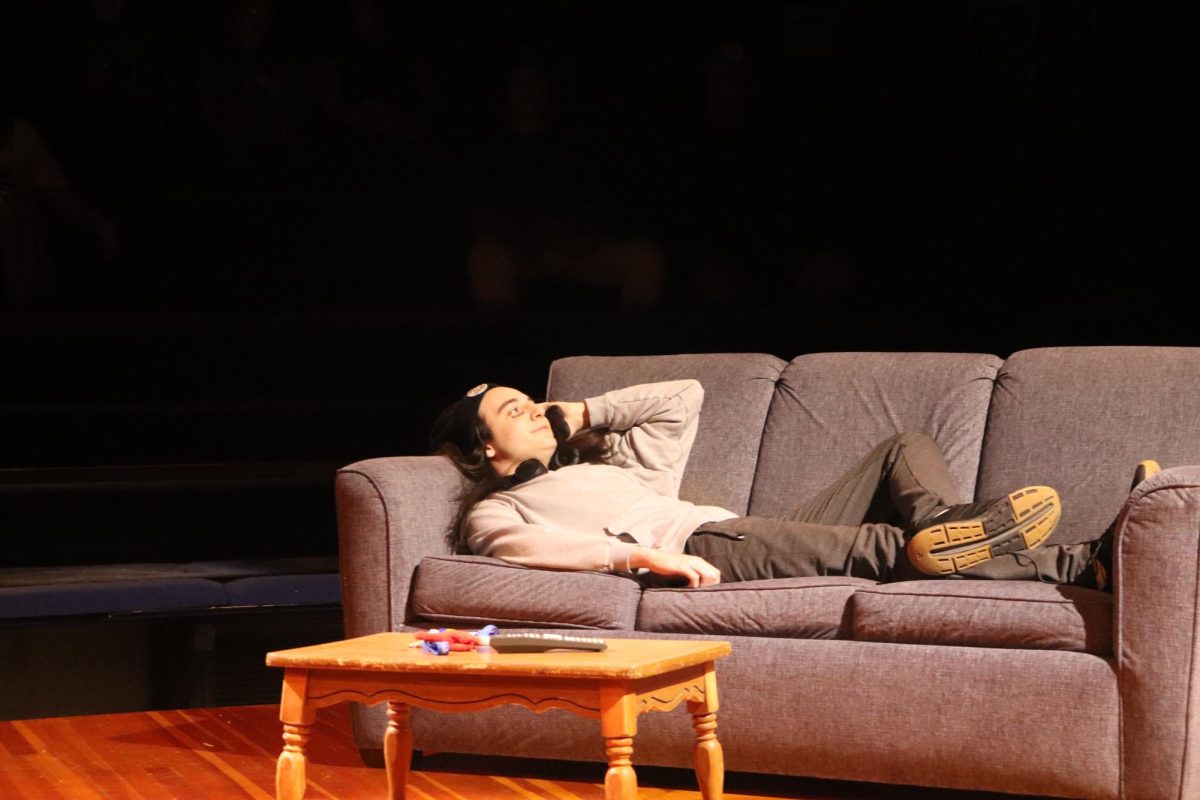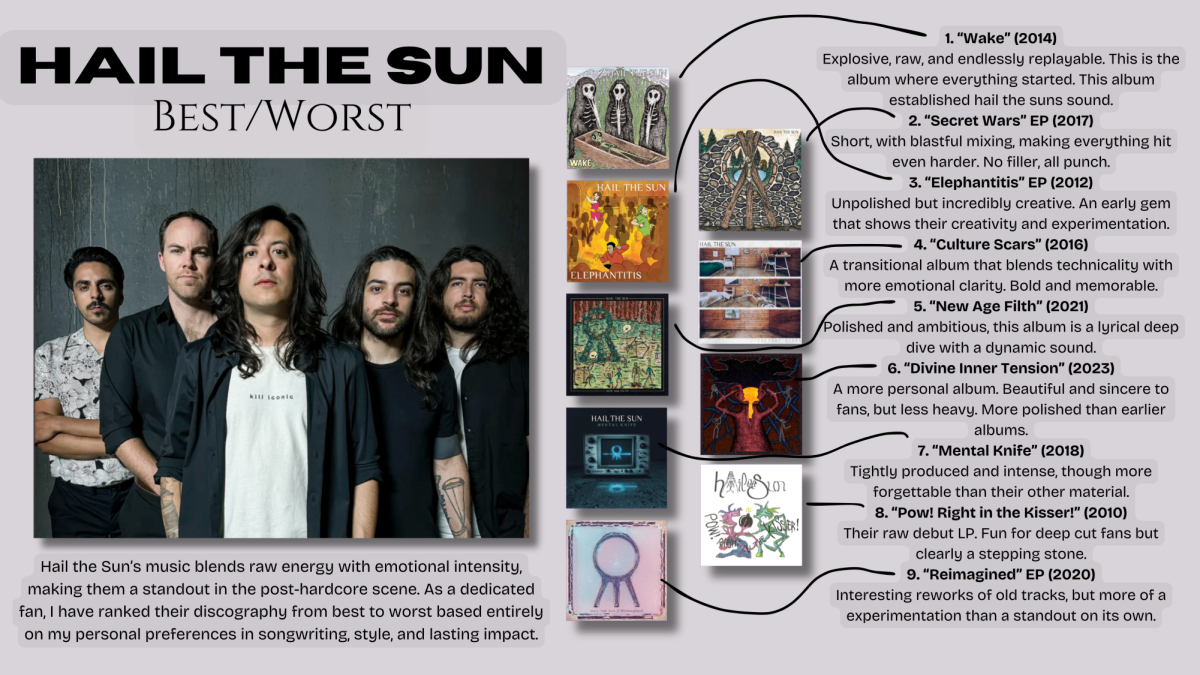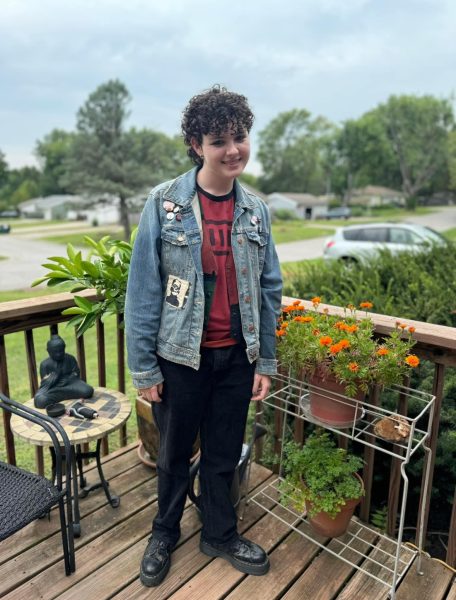I, like many of my peers, didn’t know a thing about the secretive ritual of papal conclave, save for the white smoke tradition that signifies the successful selection of a new pope. My lack of knowledge on the subject matter is a big part of why I was initially intrigued by “Conclave.”
“Conclave” won best adapted screenplay at the 97th Academy Awards and seven nominations including Best Picture. The drama explores the political state of the church after the death of a pope, how cardinals must attempt to pick the best contender for the highest position of the church and one of the most influential roles in the world.
“Conclave” follows the perspective of Cardinal Lawrence (Ralph Fiennes,) the Dean of the Vatican—he runs arguably the most influential archdiocese in the Catholic world, and the one who runs conclave when the pope dies. He struggles between finding and making sure the best candidate is elected, and making sure he sticks to his and the church’s morals.
The main conspiracy and grappling of the story is how one cardinal (Cardinal Tremblay played by John Lithgow) was mysteriously fired by the pope, but the pope died before any action was taken, and Tremblay remained within the college of cardinals. Lawrence, through political maneuvering and help from other members of the church, attempts to find out why Tremblay, a big contender for the next pope, was nearly fired, while also uncovering controversies regarding other important candidates. Among them, a mysterious new cardinal, Benitez, who was raised to his rank in secrecy due to the religious turmoil in his newly created archdiocese arrives to conclave with secrets of his own.
The story moves very smoothly, and though the film is somewhat subtle and dialogue-focused, it never strays from its striking and commanding subject matter that keeps viewers on the edge of their seats, wondering what conspiracies will be uncovered and who will be on top by the end. The writing is masterful—it’s meaningful and focused, but not on-the-nose. Fiennes delivered multiple monologues with such vulnerability, and many of the things communicated in the film were very relevant and touching to hear, even outside of religious circles. One speech Lawrence made about how absolute certainty being the enemy of unity was extremely poignant. As someone who isn’t religious, these themes transcend boundaries and make one think deeply about the complications of fear, hate, certainty, and faith.
The acting communicates these messages in an awesome way. There are many powerhouse actors in the film, such as Lithgow as the suspicious Cardinal Tremblay, and Stanley Tucci as the hopeful Cardinal Bellini. Isabella Rossellini was incredible as a Reverend Mother with more insight than the church gives her credit for. And of course, Fiennes stole the show every time he was on-screen. His traits of questioning, vulnerability and composure were both conflicting and unified, making his character seem so realistic.
I tend to view lots of these figureheads of big organizations as corrupt and often ill-intentioned, but “Conclave” explored the complicated nature of the church; how good intentions can often go hand in hand with bad decisions, and the struggle of having to choose between doing what is right, and doing what one can do to get the power to enforce what they think is right—things that cannot exist in tandem with each other. The communication of this theme through Fiennes is interesting and super impressive on his end, to make these inner struggles seem so ingrained into the characters moral psyche.
The sets and photography of the film were also striking. Filming inside the Vatican is very limited, so the creative choices made to create some of the interior sets were interesting. There was a certain modern air about places like the living quarters, dining areas and halls that make the church seem like a living, evolving thing rather than a dusty relic. There was also a grandeur in lots of the exteriors and places like the Sistine Chapel where they vote, with tall, imposing columns and walls that help showcase the power and grandeur of the church. It was a very visually interesting, though quite realistic photography style.
“Conclave,” was a stunning film that I would recommend to religious and non-religious folks alike. It makes very relevant and interesting commentary on moral rightness and power that was expertly conveyed through writing, performance, and visuals. It was very interesting to learn about the politics of the Catholic church and the way it functions. Using the device of the church to convey universal messages was really interesting and thought-provoking.
This film is now particularly timely and interesting to explore. With the death of Pope Francis on Monday, April 21, the college of cardinals will enter a real conclave and elect a new pope, likely within the month.








